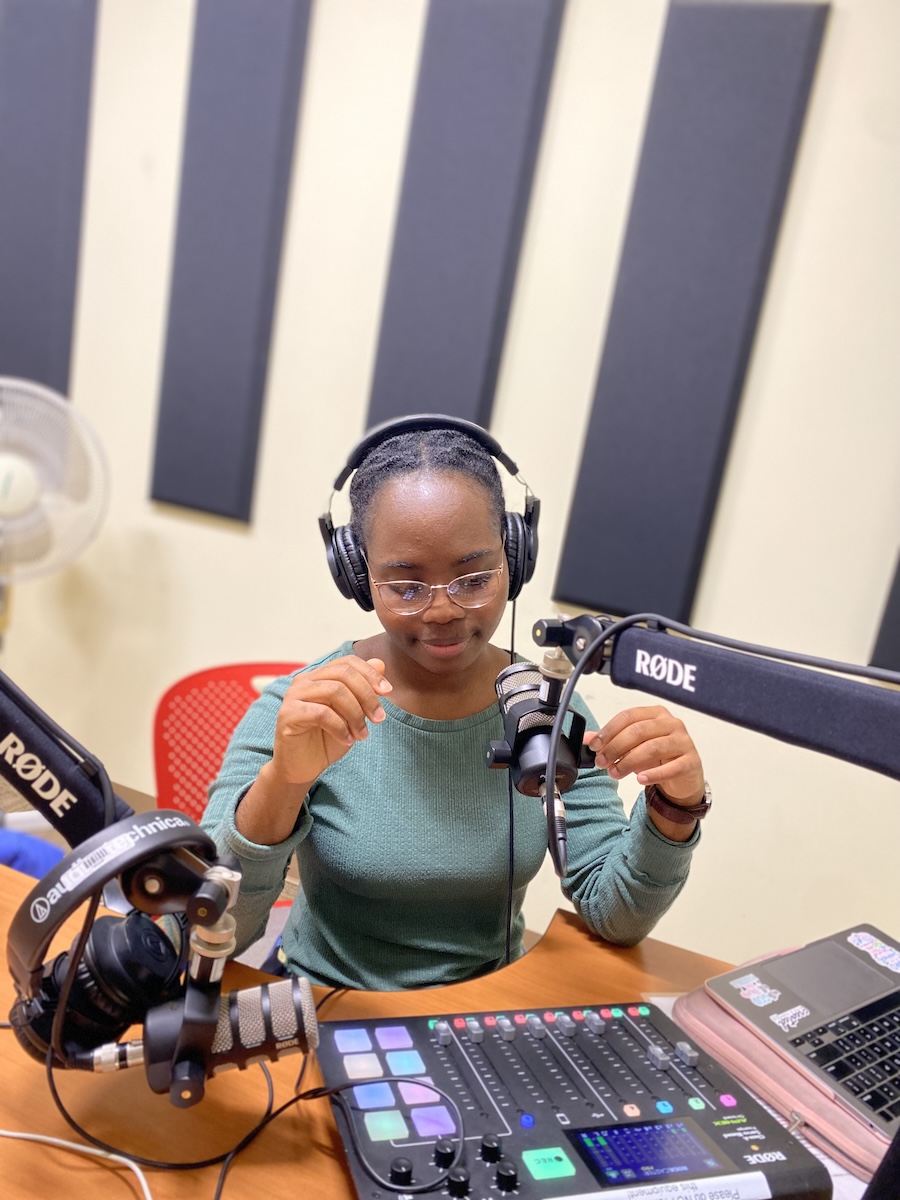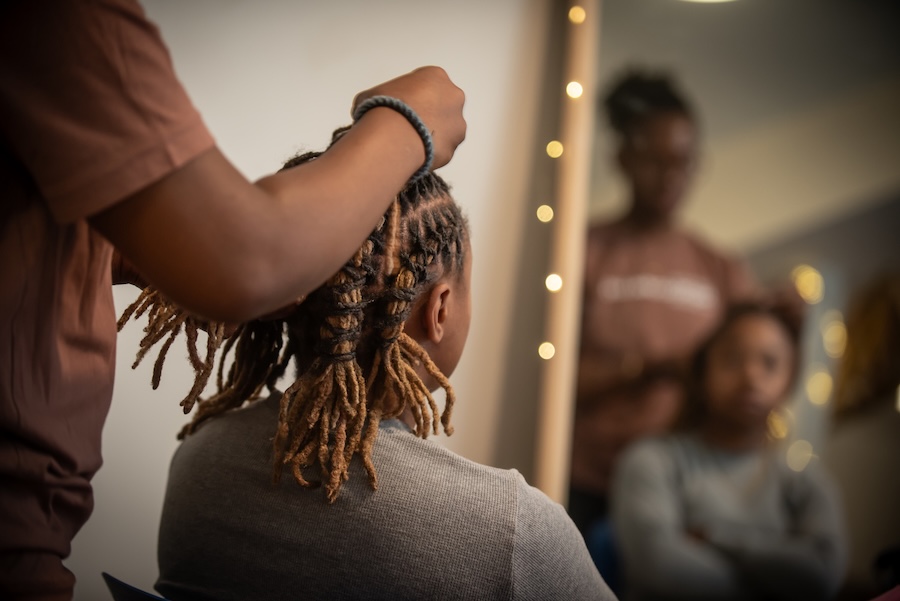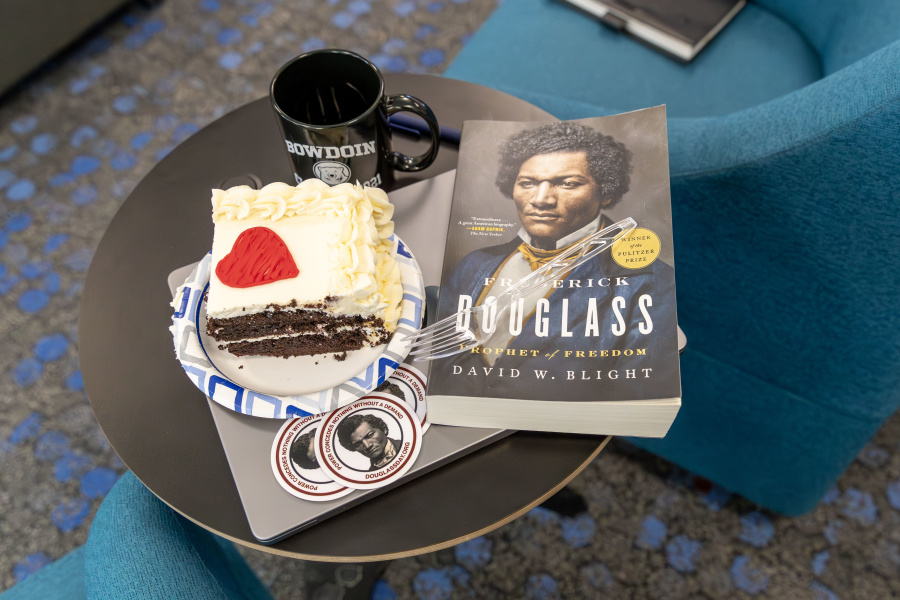Passamaquoddy Frances Soctomah ’14 Weaves Together Past and Present
By Rebecca Goldfine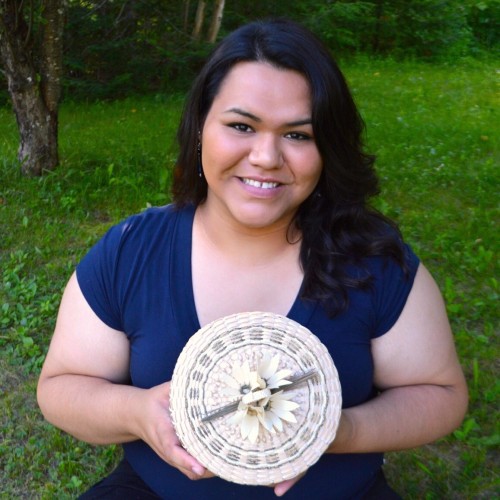
To make Wabanki baskets, Frances Soctomah ’14 uses softened wood cut from ash trees and sweetgrass collected from salt marshes. As she weaves the basket together, she is carrying on a long Passamaquoddy tradition.
While baskets are an important part of her culture, they also play a big role in Soctomah’s family, of Indian Township, Maine. Her grandmother, Molly Neptune Parker, is a master basketmaker and recipient of a 2015 Bowdoin College honorary degree. A maker of baskets since she was a young girl, Parker helped found the Maine Indian Basketmakers Alliance in 1993 to resurrect a tradition she saw disappearing from Maine’s Wabanaki people — the Maliseets, Micmacs, Passamaquoddies and Penobscots.
“When my grandmother talks about when she started the alliance, she could count the number of basketmakers in each [Wabanaki] community on one hand,” Soctomah said. Today the alliance teaches new members the techniques of basket making and supports those who make and sell them. “The average age of basketmakers is getting younger and younger,” Soctomah noted. By offering educational workshops and apprenticeship programs, as well as working to conserve the places in Maine where ash and sweetgrass grow, the alliance is sustaining a part of the Wabanaki way of life.
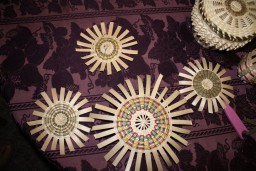
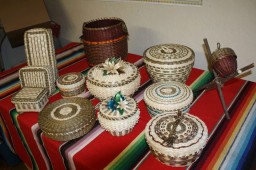
This summer, Soctomah has a Robert S. Goodfriend Summer Internship grant from Bowdoin to work for the alliance. Her tasks include finding more ways to support basketmakers and to help them better market their work. “We’re trying to figure out how to boost their sales,” she explained. “Something we’ve noticed is that some people sell better than others.” By sending out a survey to the alliance’s members, Soctomah is trying to find out the most effective sales techniques. After gathering this information, the alliance might offer new services, such as a business development and marketing workshop or one on website development and social media — areas that some older members might not feel too comfortable with. “My grandmother just got a Facebook page a few months ago!” Soctomah added.
Soctomah began making baskets when she was six, and apprenticed with her grandmother when she was a teenager. “It is some of my favorite times, just interacting with my gram,” she said. “She tells a lot of stories about when she was young, about how she started making baskets with her mother who gave her the junk pieces until she began to show an interest in basket weaving.”
The act of weaving baskets links Soctomah to her past. “When I am making baskets I am thinking about all of the work my ancestors have done, in terms of refining this art, protecting it and passing it on to future generations,” she said.
“Basketmaking to me also means family,” she continued. “My grandmother has mentored so many of us [children and grandchildren], and it’s a way for all of us to get together, share stories and bond over a tradition that is so old we don’t even know when it originated.”
The rising senior says she plans to attend graduate school after Bowdoin, possibly in linguistic anthropology. She is interested in helping preserving her native language. Then she will return home. “There’s this expectation when we raise our kids that they’re always going to come back and make our communities better and stronger,” Soctomah said. “This is where I’m going to be. This is where my heart is. I am fortunate, grateful, that this is still the place I call home.”
Last semester, 2015 honorand Molly Neptune Parker gave a presentation at Bowdoin on basketmaking.

